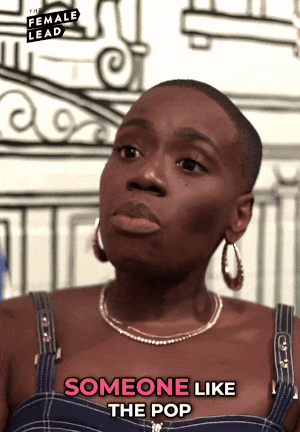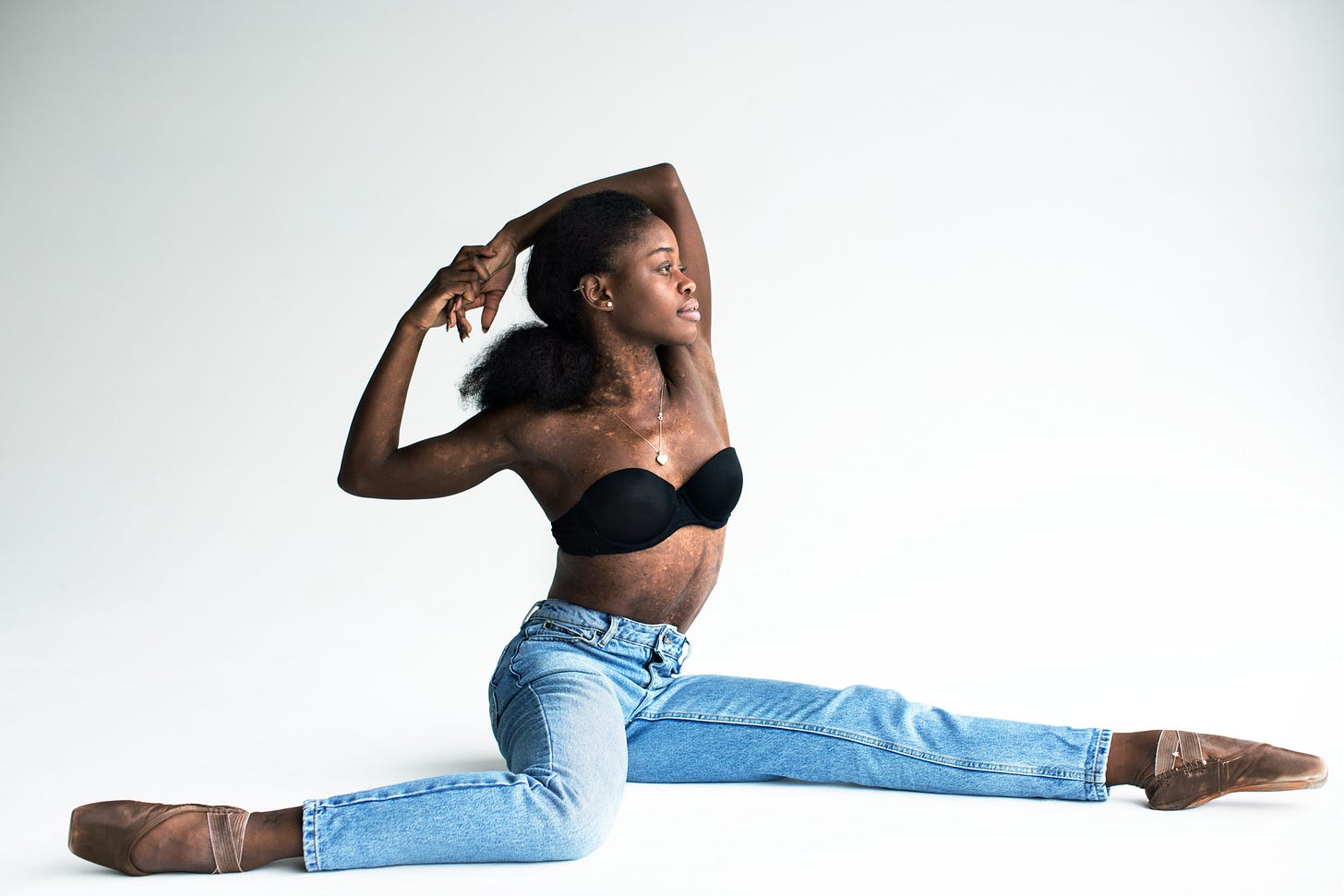Women, you’re furious
Plus: 💍 divorce stigma 🚫 how to say ‘no’ 💗 and remembering Michaela DePrince
Women have been getting angrier over the past decade. They were a full 6 percentage points angrier than men in recent research.
We have plenty of reasons to be mad. But where does our rage go, in a world where little girls are taught that crying is ok, but yelling is unfeminine?
According to psychotherapist Jennifer Cox, it stays bottled-up, and it’s making us ill. Cox has worked with violent male offenders, but says she has never seen rage as raw as in her female patients.
Read more about why - and what we can do about it - below.
This is the first edition of The Female Lead’s new newsletter, Take The Lead, which we’re thrilled to say will be hitting your inbox every fortnight. It’s free, and it will never take you more than 5 minutes to read. Thank you to the 10,000 of you who are already signed up.
Please let us know what you think by replying to this email, or emailing info@thefemalelead.com if you are reading this post on our Substack.
Thank you for your support.
The Female Lead Team
We’re talking about…
💍 Divorce in your 30s: Model Poppy Delevingne has said that her marriage might have ended sooner were it not for what she called the “extraordinary” stigma around divorce. She said she felt a “bubbling up of freedom” afterwards and that: “We have one shot at life. Oh my god, I chose happiness. I chose me.”
🩸 Period blood’s superpower: after being overlooked for years, menstrual blood is finally being recognised as a secret weapon for medical diagnosis. Devices are being developed that could monitor conditions like diabetes, or test for HPV, non-invasively using a simple pad that collects a sample.
💸 Funding shortfall: A study into female business founders found over half (58%) have never sought external finance, with 79% self-funding their businesses. The researchers called for funding to be made more accessible to female entrepreneurs.
⏱️ Menopause boost: A quarter of women feel more at ease with themselves after menopause, according to a new study which found 18% now feel they can focus on their own desires for the first time, 23% felt generally care-free, and 18% claimed to have gained more confidence.
Inspire me…
“Who is my role model? Someone like the pop star Kelis. She’s so quick with the pivot. One minute, music, then she just buys 50 acres of land and becomes a farmer… That lights my fire no end, when I just see women go ‘Not quite working, this,’ and they just leave. Oh my gosh. It’s just so exciting to not see yourself contained in that way.”
Candice Brathwaite, author and speaker
Women are angry. And it’s making us sick.
By Jennifer Cox, psychotherapist and author
Women, I need to let you in on a terrible secret. You’re furious. And your rage is making you ill.
As a psychotherapist, I cut my teeth professionally working in prisons with openly raging, violent male offenders.
When I moved into private practice, working mainly with women, I was shocked to discover that the same types of angry feeling were filling the room. High-achieving, high-functioning women who, on paper, seemed to ‘have it all’, came to me presenting with anxiety or depression, burn-out, or eating disorders. Or suffering from a lifetime of migraines or stomach problems. Beneath those symptoms, I began to pick up on that same familiar atmosphere of rage.
These women - so put-together, so thoughtful and generous and brilliant - were absolutely furious. I began to ask why. The answer is screaming at us. But we’re too busy trying to survive the trap which society has set, that we can’t step back to spot it.
Toolbox: Learn to say ‘no’
From Dr Claire Kaye, Executive Career Coach and a former GP
🤔 Why: If you constantly say ‘yes’ to things you don’t want to do, you will end up having to say ‘no’ to things that do matter to you. Learning to say ‘no’ in a way that fits your personality can create boundaries and prevent burnout.
🔧 How: Saying no can feel hard, but trust your gut. If your immediate reaction isn’t a ‘Oh yes’, then it’s likely the answer should be a ‘no’. Think about past situations when you have said ‘no’ successfully. Reflect on how you did it, what made it easier and how it felt. Use the same techniques in the future, as they are what work for you.
Practise different ways of saying ‘no’ and pick the ones that align best with your personality. Here are some examples:
‘Thank you for thinking of me but I can’t commit to this right now.’
‘Unfortunately, I can’t help this time.’
‘I don’t have availability right now.’
‘I don’t think I’m the right person for this.’
Remembering Michaela DePrince
Michaela DePrince, who we interviewed for our first book, The Female Lead: Women Who Shape Our World, died suddenly last week aged 29.
Michaela was a Sierra Leonean-American ballet dancer. She was orphaned at the age of three in Sierra Leone’s civil war and sent to an orphanage where she was called ‘devil’s child’ because of her skin condition, vitiligo. She was later adopted and moved to the USA. Inspired by a ballerina she had seen on a magazine cover, she trained as a ballet dancer, later joining the Dutch National Ballet.
For our book, Michaela selected an item that had a personal significance for her and her success. She chose a pair of silver earrings set with moonstones that had belonged to her adoptive mother.
She said: “She used to let me wear them on special occasions, and when I left home for The Netherlands, she gave them to me to keep. They were a gift from my mother to my father in their early years of marriage… By passing them on to me, she made me feel truly loved and protected by both of my parents. Since earliest times, moonstone has been considered an amulet for travellers and a path to wisdom. When I wear the earrings, I know they once dangled from my mothers ears. She is a very strong and wise person and I feel her strength and wisdom is transferred to me.”
Final thought
Become a paid supporter
The Female Lead is a charity on a mission to empower women.
In the last 8 years, we have given access to books and teaching materials to 2.5 million students in 25,000 schools around the world. We carry out research that reframes our understanding of women’s experience, such as our Fulfilment Finder survey which reveals what matters most to women at different life stages. It has now been completed by 150,000 women globally.
We can’t run the charity without your support.
For just £3.50 a month or £25 a year, you can make a huge difference.
Your donations allow us to continue to provide teaching resources and education to girls and women around the world, conduct groundbreaking research, and share science and stories online.
By pledging to make a donation, you get a host of other benefits like:
Access to our full archive of content on everything from advice from CEOs, to early menopause, to the brain impact of the mental load
Get the first look at our research reports busting myths around women
A virtual supporter badge to share and display online







